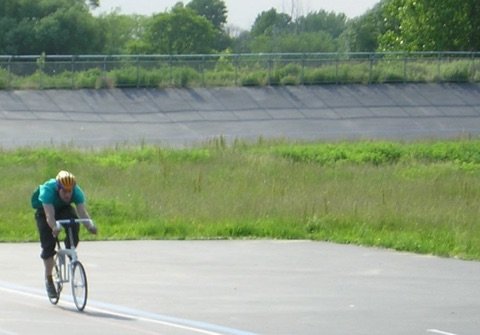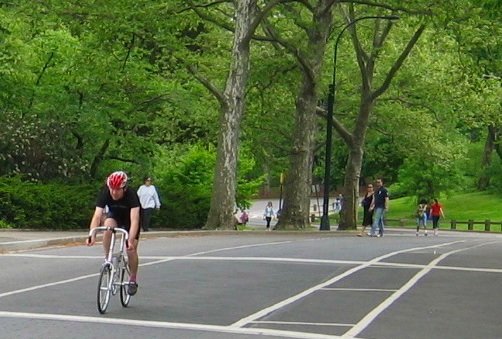The first swift folder was sold in 1996, the result of a three year cross-country collaboration between Peter Reich, a New York based industrial designer, and Jan VanderTuin, founder of the Center for Appropriate Transportation in Eugene, Oregon.
Peter's company, Design Mobility Inc., once created simple compact products ranging from folding lift and transfer devices for quadriplegics to an affordable home floatation tank. Now settled into putting Swifts together for customers world-wide in his Brooklyn shop, Peter has also worked with student interns at Recycle-A-Bicycle sharing the fine arts of wheelbuilding, production planning, and bicycle assembly.
Jan is a dedicated bicycle craftsman, and his vision for a perfect bicycle world is evident in the workshops at CAT, including BikeLab, where teenagers learn about fixing bikes; Eugene Rack Works, a youth-run business that builds bike-parking racks; Eugene Bicycle Works, a do-it-yourself repair shop; and Human Powered Machines, which makes work bikes and trailers, as well as our folder.
There were seven prototypes built between 1993 and 1996 (Peter drew, Jan built, then Peter tinkered, tested, and redrew) before serial production began. The first bikes DMI sold were built on steel frames fabricated by HPM in batches of 5, followed by a revised steel version provided by Wellbilt Industries of Linden, NJ and built in batches of 50.
Since 2004 Xootr, the Urban Transport scooter company, has offered a ready-made aluminum-framed version of the swift folder at a more affordable price, imported by the container-load from Taiwan.
Using these frames, Peter currently fills custom orders and prepares single speed and eight speed internally geared versions of the bike for sale through several local outlets (see Purchase). Jan continues to offer the original steel framed design, built to order. New aluminum framesets are also available to those who want to do it themselves.
In addition, a special program created with the RAB staff and their interns matches new or used frames (when available) with carefully selected recycled parts to create unique swifts.
From this meeting of minds the swift folder continues to evolve, harnessing technology to help create a sustainable future. Each bike purchased from DMI or HPM is built to order, with production decentralized in community-supported shops.
The result: All our bikes are carefully crafted, available in many versions, and built to exacting standards. All beautifully simple!
Here’s a short slideshow on the design development of the bike, pre-sented at the Museum of Art and Design in NYC on June 22, 2010.








